The 5 Worst Supplements You Can Take for Muscle Growth
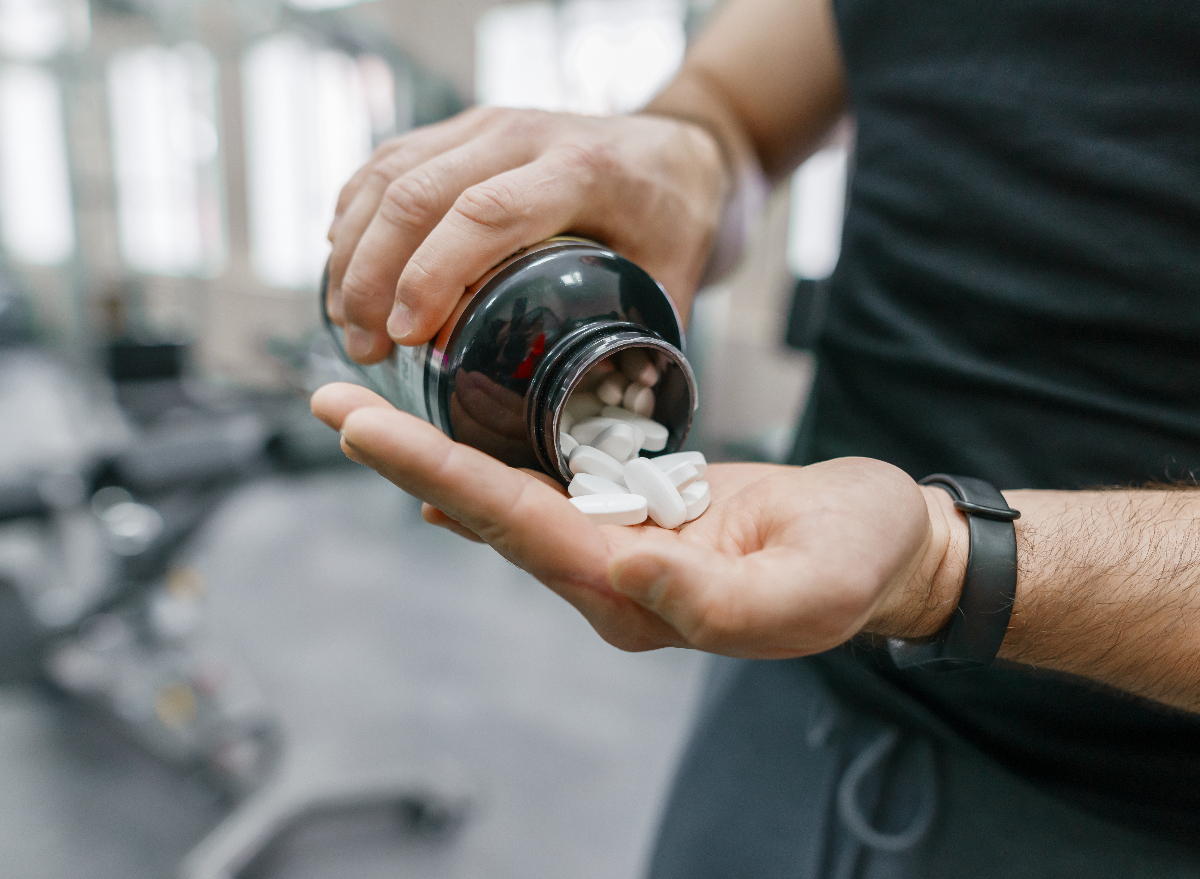
With so many supplements on the market nowadays, doing proper research to decide which are the most effective for your needs can feel like a lot of work. When you can get tried and true recommendations from certified professionals, it can make choosing the right supplement for muscle growth far less daunting. Likewise, knowing which supplements you should absolutely leave on the shelf can help you make a more informed choice. We spoke with Noah Neiman, co-founder and CPT at Rumble Boxing, and Kelly Najjar, NBC-HWC, a personal trainer on Fyt, who share the worst supplements for muscle growth so you don’t waste your precious time or money. If you’re looking to build your muscles and boost your fitness, listen up!
As far as an expert’s personal supplement routine’s concerned, Neiman swears by Athletic Greens, creatine, vitamin D, caffeine (which he calls “the OG pre-workout”), and omega-3 fatty acids. When speaking of creatine, Neiman explains it’s “one of the only supplements” that has consecutively been found in research to impact strength, muscle mass, and performance. Omega-3s are excellent for both your brain and muscle health, and a high-quality vitamin D supplement (along with natural vitamin D from the sun) provides your body with healthy “energy systems” that can help you sculpt more muscle.
Now that you know some beneficial supplements to consider, keep reading to learn all about the worst supplements for muscle growth. And when you’re finished, don’t miss How Out Of Shape Are You? A Trainer’s Test Will Reveal Instantly.
Fat Burners
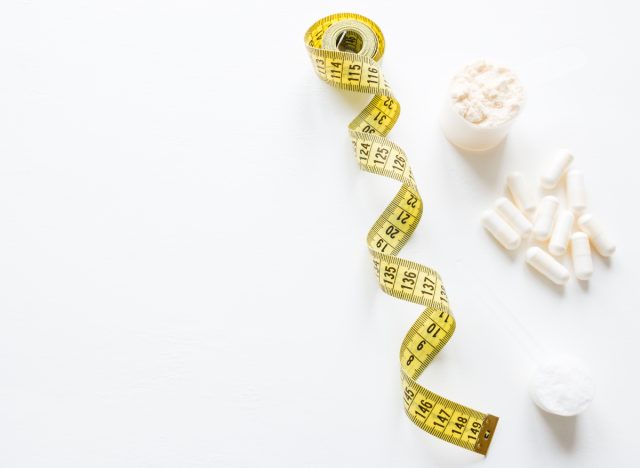
First up on this list of the worst supplements for muscle growth are fat burners. Contrary to their name, “fat burners” don’t deliver the results you might expect. Studies don’t even back up the claims made by companies selling these fat burners, Najjar says.
“If you consume more calories than you burn, you gain weight. If you consume fewer calories than you expend, you lose weight,” Neiman explains. “Supposed fat burners claim to target fatty deposits but most are simply ‘truck stop’ stimulants that are loaded with caffeine and other additives that have never been shown to actually ‘BURN’ anything.”
BCAAs
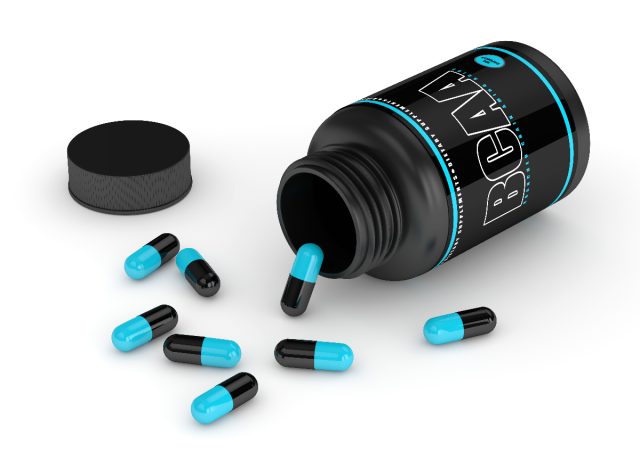
The next supplements that Neiman and Najjar both call out are BCAAs. They claim to help with muscular development and aid in the repair process of tissue damage.
“While it is true that amino acids are used to build protein, taking branch chain amino acids won’t get you the results you want,” Najjar explains. “BCAAs consist of three essential amino acids which are burned by muscles as energy. When building muscle, athletes should follow a nutrition plan with plenty of good-quality proteins. These proteins are broken down by the body into amino acids which are then used to build muscle.” Following a healthy nutrition plan will give you exactly what you need to grow your muscles, so taking BCAAS is unnecessary.
Low-Quality or Vegetarian Protein Powder
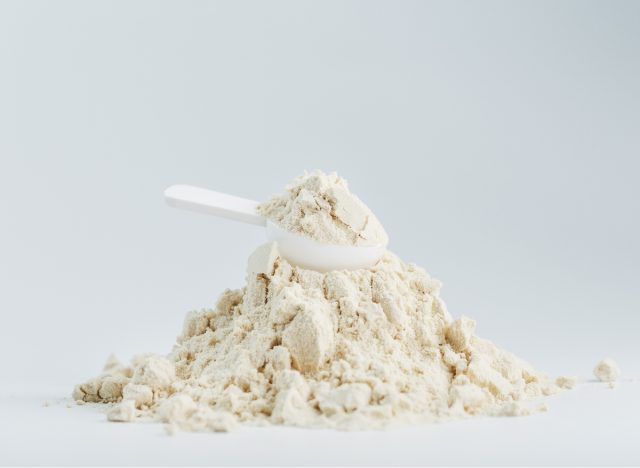
If you want to build muscle, protein is crucial. But as Najjar stresses, “not all protein is created equal. Digestibility and absorption rate must be considered when deciding what protein source to consume. Most vegetable proteins are not complete proteins, meaning they don’t have all the essential amino acids, so they aren’t giving you everything you need within a single protein,” she explains. It’s important to mix various sources of vegetarian protein in order to obtain all of the essential amino acids. In addition, when compared to animal proteins, vegetable proteins don’t absorb as nicely, meaning you need to eat a greater amount of them. Just one cup of grilled chicken has more protein than many protein powders. Plus, it’s easy to digest and absorb.
Most Multivitamins
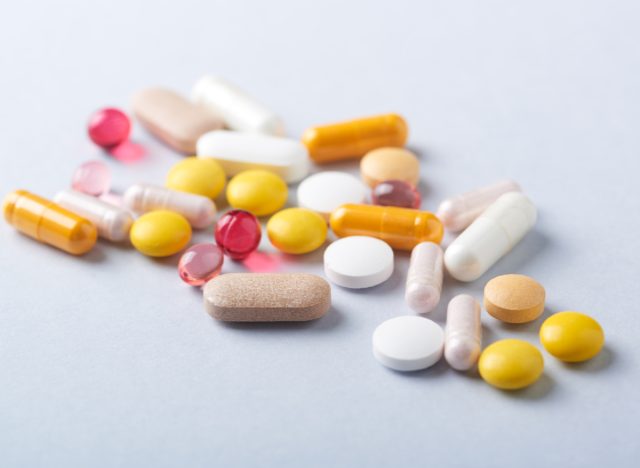
Many multivitamins that are low-quality claim to be an excellent source of minerals and vitamins, but don’t be fooled by the nutrition label. “What matters is the bioavailability of what you’re taking,” Neiman tells us. “Be wary of any ‘magic’ pill that makes outlandish claims.” Typically, the best supplement is adequate rest, nutrition, and hydration.
Non-Pharmaceutical “Testosterone Boosters”
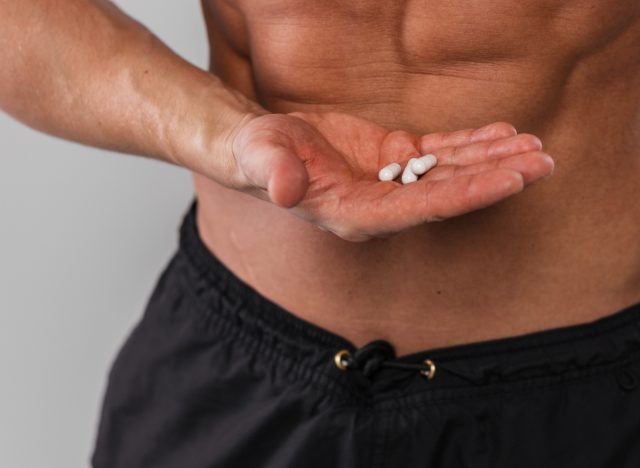
Last but not least on our list of the worst supplements for muscle growth are non-pharmaceutical testosterone boosters. Neiman points out, “There is absolutely a correlation between testosterone levels and muscular composition. However, all of these over-the-counter pills claiming to naturally boost testosterone have shown little to no impact on actually doing so. Save your money!”









